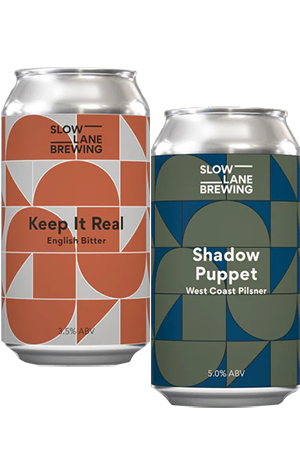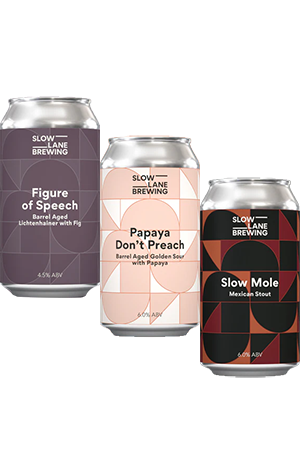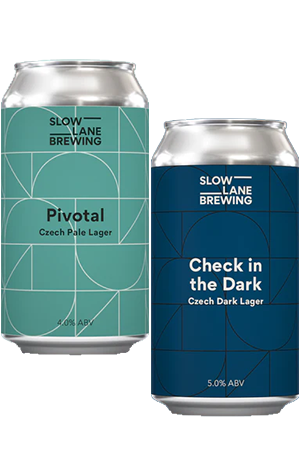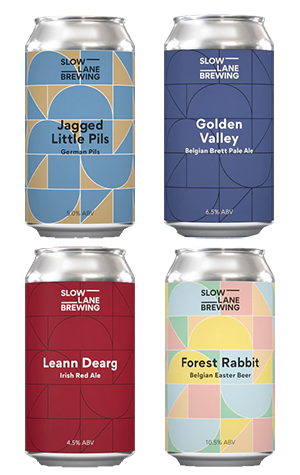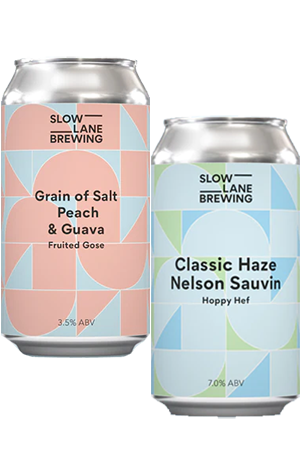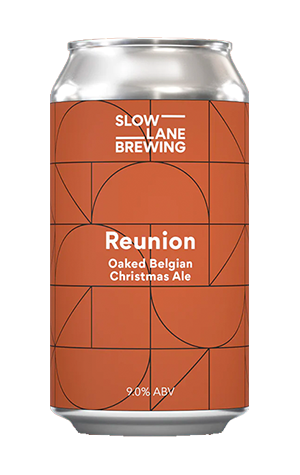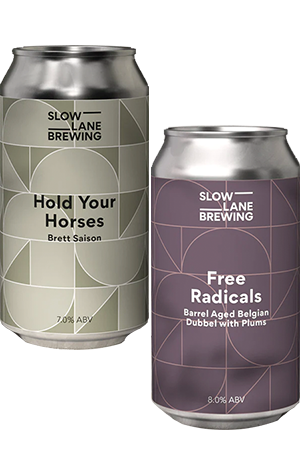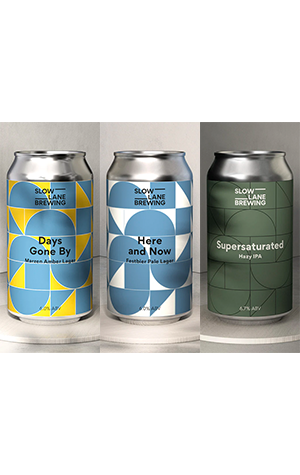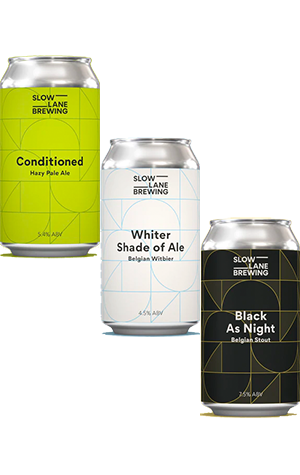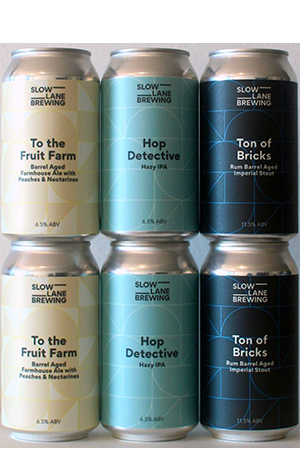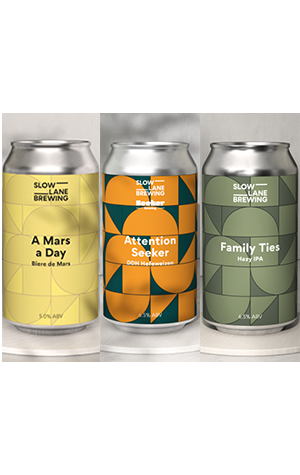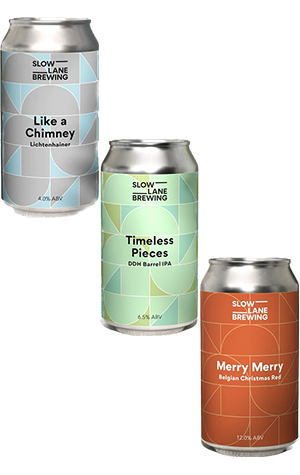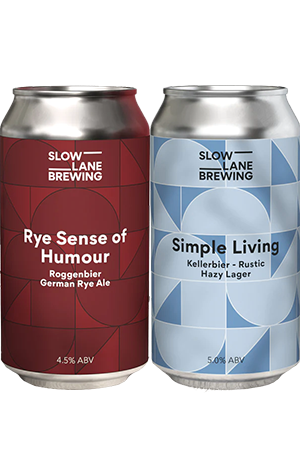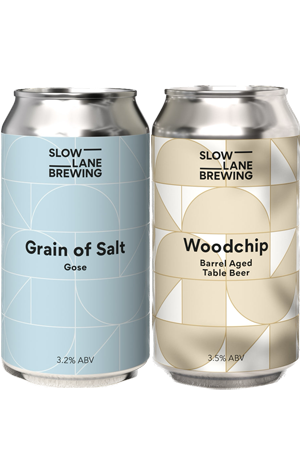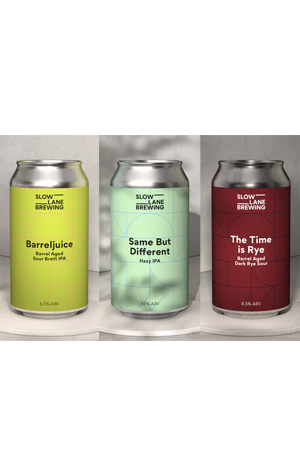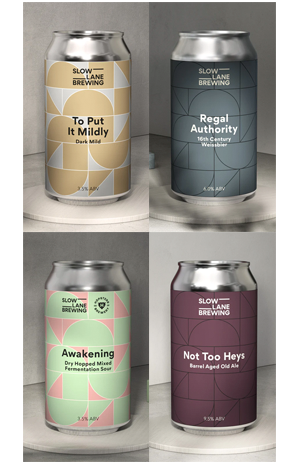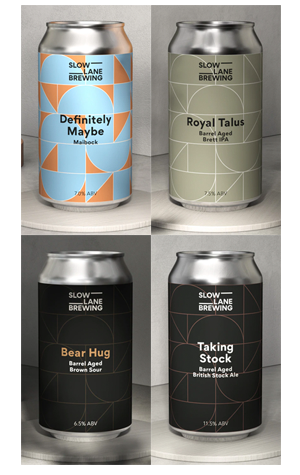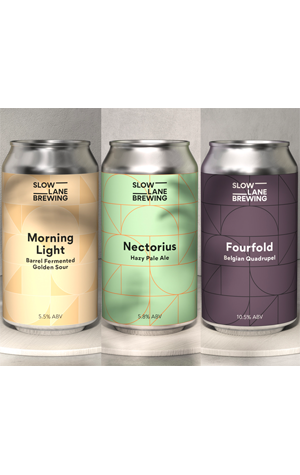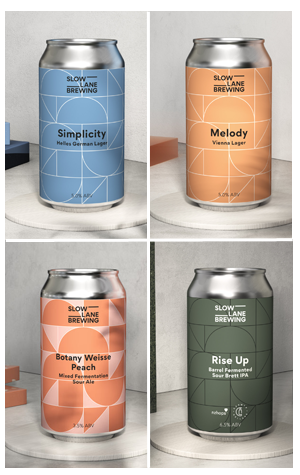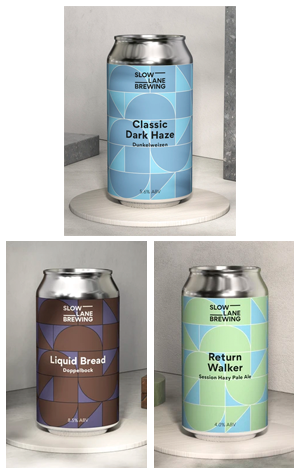Well, that’s that. Oktoberfest is done for another year. A hearty "Prost!" to all who observe this sacred time but I’m afraid you must fold away the dirndl, box up the steins, and promise yourself that maybe next year you’ll get around to finishing off that kilogram jar of sauerkraut you bought four years ago. As is customary, anyone caught selling a non-pilsner German style beer from now on will be prosecuted to the full extent of Beer Law. The maximum penalty? Sixty days hard labour (being forced to read Untappd reviews): “Wow, this cucumber sour tastes a lot like cucumber. I really hate cucumber, 1 star.”
Yet... well, well, well what do we have here? Three German styles delivered to my door weeks after the official event is over and mere days before October itself is done for? Do we have a scofflaw in our midst? It seems that perennial style criminals Slow Lane are at it again. When will they learn? Judge, fire up the app! “Incredible balance, one of the most delicious things I’ve ever had, the literal embodiment of perfection. 3.75 stars.”
Märzen, or March beer, is the style that basically gave birth to Oktoberfest. Märzens were laid down in March before the warmer weather and the spoilage yeasts and bacteria that come along with it had a chance to ruin the precious liquid. Essentially, they're stronger and darker than most German lagers, perfect for October’s autumn weather. Although as it turns out, they absolutely rule as a spring beer for the likes of us!
March To October pours a cloudy light amber with a rich tan head from its base of Vienna and Munich malts and there’s a fragrant mix of classic German malt aromas and flavours. There's toasted pretzels and a berry like sweetness with only a slight noble hop character, and while there's plenty of creamy malt on the palate it’s elegantly balanced and not sweet.
Kolsch is the kind of hyper regional beer style that I love. An ale brewed like a lager, only allowed to be brewed in the City of Cologne and served in its very own glass called a stange. It would be very funny if the good people of Cologne were so protective of a beer that wasn’t very good anyway – luckily for them, Kolsch is bloody delicious. Slow Lane’s Stanger Danger is no exception.
You’ll often see people and breweries talk about how beer should only contain water, malt, hops and yeast, but it’s pretty rare that a finished beer will literally only contain one of each of these ingredients. For this beer, Slow Lane have stuck with Cologne malt, Hallertau Mittelfrüh hops and a Kolsch ale strain to go for something that’s completely true to style. Although I’ve never been to Cologne, this is exactly what I imagine a Kolsch to be, and I might as well just copy and paste the BJCP style guidelines here. Grainy white bread malt, pronounced noble hop aroma, low level biting bitterness, perfectly poised and fresh as anything. God, what a bloody delight.
Finally for Oktoberfest 2021, Slow Lane have blessed us with an altbier. It’s absolutely insane to think that, just as Cologne has its Kolsch, a city less than 50kms north would have its own beer too. And it’s a completely different style. It’s the equivalent of Sydney having a homegrown pale ale that’s only served within the city and you drive the 45 minutes out to Penrith and every pub only serves Penrith brown ale.
Dusseldorf altbiers are generally dark copper ales that pre-date the use of lager yeasts and, like Kolsch, they share plenty of characteristics and brewing methods of lagers but are most definitely ales. Altogether pours a dark, hazy, reddish copper with milk chocolate and vanilla out of the glass. The body is dark bread and spicy hop compounds with some yeasty esters thrown in for good measure. Overall, a wholesome and crispy, clean-drinking experience, entirely justifying the egregious crimes Slow Lane continue to commit.
Judd Owen
Published November 3, 2021 2021-11-03 00:00:00









